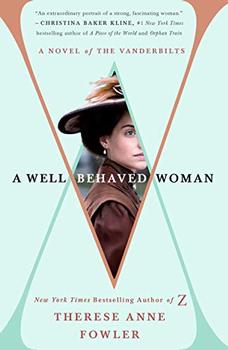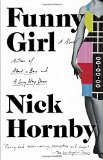Summary | Excerpt | Reading Guide | Reviews | Beyond the book | Read-Alikes | Genres & Themes | Author Bio

A Novel
by Phillip MarguliesA sweeping historical novel based on the extraordinary life and times of Belle Cora, the daughter of a New York merchant who went on to become a millworker, a prostitute, a notorious madam, a murderess, and eventually one of San Francisco's richest and most revered dowagers.
Some people remember her as Arabella Godwin, others as Harriet Knowles, and still more as Frances Andersen or other names too numerous to list. But let there be no confusion, this is the legendary story of Belle Cora (1828-1919), who survived by her wits and made a fortune off the greed and lust of men.
Orphaned at age nine, Belle and her brother, Lewis, are sent to live with their devoutly religious aunt and uncle in rural upstate New York. Nothing can prepare her for the cruelty of her watchful, jealous cousin Agnes, who would become a lifelong rival and enemy. Yet there, Belle also meets the love of her life, Jeptha Talbot. As she blossoms into a true beauty, however, two horrendous events separate her from Jeptha and Lewis. Heartbroken, Belle flees the countryside and finds work in a mill, where she is exposed to the looser morals of hard luck women and begins to harden into the powerful, cunning woman she will become.
Soon Belle finds herself in New York, where life takes a dark but alluring turn as she succumbs to the indulgent lifestyle of a highly sought-after prostitute to the city's wealthiest men. But beneath the silk and taffeta layers, she harbors a deep longing to be reunited with Jeptha, now a respected preacher. The road back to him will take her on a treacherous journey from the town houses of Manhattan to the dusty streets of San Francisco at the height of the Gold Rush. It's a road of good intentions, but paved with secrets and lies on which the conniving, sometimes ruthless Belle must transform herself again and again to get what she wants.
This is the spellbinding story of the devious exploits of a singular woman ahead of her time. Be prepared to be swept away by Belle Cora.
Told from Belle's perspective as an older woman, this novel, over 500 pages long, masquerades as her memoir. Belle is captivating, not only because of her unique adventures, but because of her opinions of them. Belle Cora is a grand novel in every sense of the word. It will appeal to historical fiction and literary fiction fans alike...continued
Full Review
(627 words)
This review is available to non-members for a limited time. For full access,
become a member today.
(Reviewed by Sarah Sacha Dollacker).
Belle's aunt and uncle followed the preachings of William Miller, a New York farmer and the founder of Millerism. They believed Miller's prophecy that Jesus would return to earth in 1844.
 Miller's idea was not profound — or original. The notion of the Second Coming is a core tenet of Christianity. Though the idea is central, the interpretation and definition of the Second Coming has not always been agreed upon by Church leaders and theologians. The early Christians read much of the Bible, including the Book of Revelations' prophecy about Jesus's return, as allegorical, an interpretation that dominated Christian thinking until the Protestant Reformation. The Protestants, however, believed that the prophecies were literal. For ...
Miller's idea was not profound — or original. The notion of the Second Coming is a core tenet of Christianity. Though the idea is central, the interpretation and definition of the Second Coming has not always been agreed upon by Church leaders and theologians. The early Christians read much of the Bible, including the Book of Revelations' prophecy about Jesus's return, as allegorical, an interpretation that dominated Christian thinking until the Protestant Reformation. The Protestants, however, believed that the prophecies were literal. For ...
This "beyond the book" feature is available to non-members for a limited time. Join today for full access.

If you liked Belle Cora, try these:

by Therese Anne Fowler
Published 2019
The riveting novel of iron-willed Alva Vanderbilt and her illustrious family as they rule Gilded-Age New York, from the New York Times bestselling author of Z: A Novel of Zelda Fitzgerald.

by Nick Hornby
Published 2016
Insightful and humorous, Nick Hornby's latest does what he does best: endears us to a cast of characters who are funny if flawed, and forces us to examine ourselves in the process.
A few books well chosen, and well made use of, will be more profitable than a great confused Alexandrian library.
Click Here to find out who said this, as well as discovering other famous literary quotes!